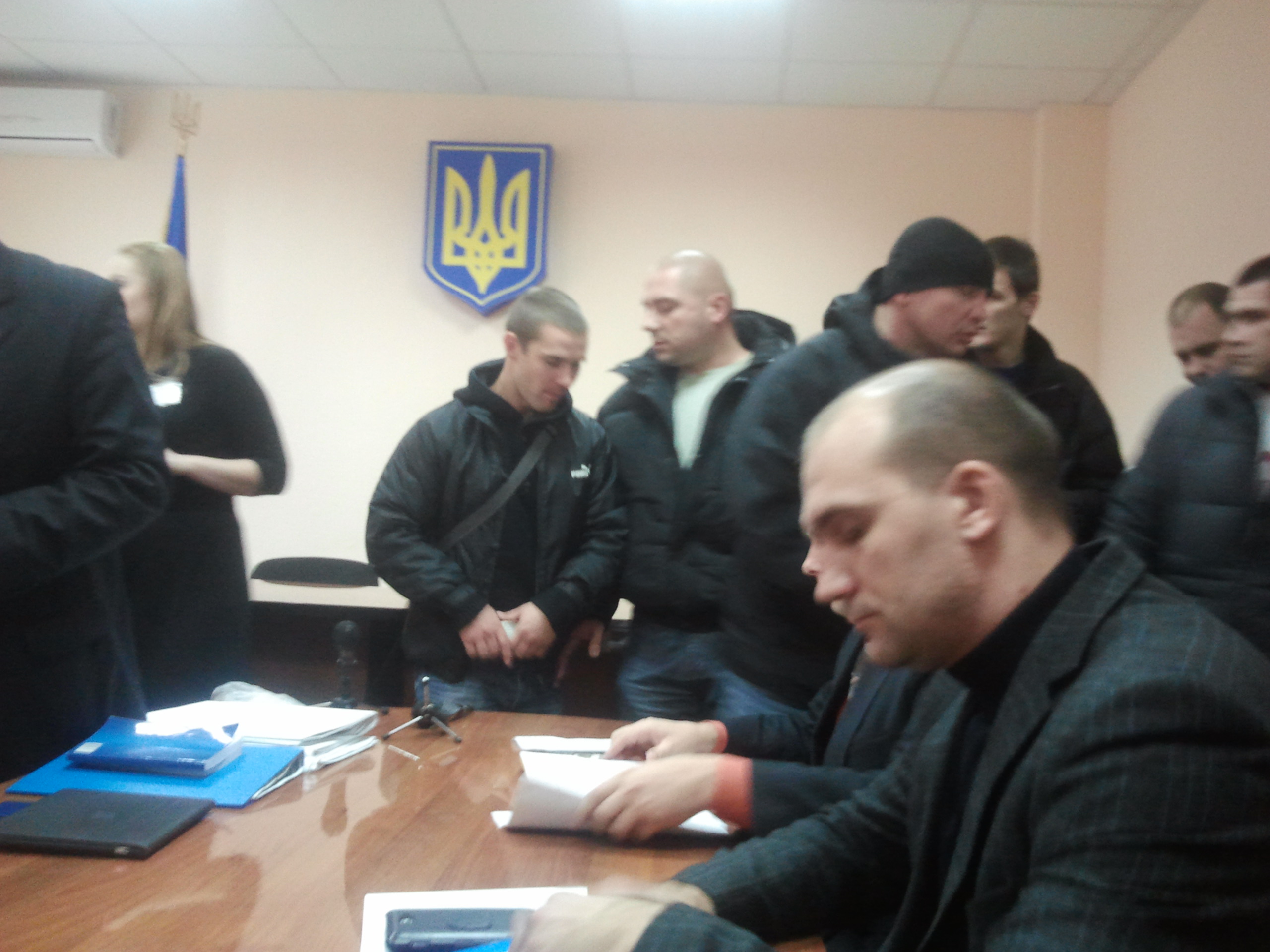On 3 November the court took a decision on the lawsuit filed by Oleksandr Marchenko on falsification of precinct election commissions' protocols in the election district #90
We remind, that on November 1 was initiated a case of disputing voting results in the election district #90. A candidate from the All-Ukrainian Union Svoboda Oleksandr Marchenko has filed a corresponding claim against the DEC, assuming that it has falsified protocols of the precinct election commissions and provided the CEC with false data. Representatives of the DEC failed to provide original protocols, because the Head of the Commission has disappeared. In result, the sitting was continued on November 2.
However, the situation almost hasn't changed. Representatives of All-Ukrainian Union Svoboda provided 7 discs on which the results of every precinct commission are read out. Yet, judges are going to watch them selectively (it's about 7 hours).
One of representatives of Oleksandr Marchenko was removed from the court before the first technical break, but he was later allowed to come back – until the first warning. Marchenko's representatives were sent to the CEC to get numbers of protocols, because, according to Oleksandr Marchenko, they don't coincide with original numbers of protocols provided by the CEC.
A lot of young strong men registered as mass media representatives were present inside the court building. They were preventing people from entering the court sitting, including journalists. A number of "fighters" – were guardians of a candidate Mr. Chudnovskyi. In particular, they said to a representative of OPORA that he "had better pictured mushrooms in the forest", and threatened the journalist from the Svidomo journalistic investigations bureau.
Hearing of the case continued at 21.00 after a long break. The judges debarred adduction of a document received from the CEC. Some heads of the PEC provided written statements in which they affirmed that the voting results in protocols which they signed differ from those published on the official website of the CEC. Nevertheless, the divergence in numbers of protocols were not considered to be a cause for an appeal against results of the PEC. The judges decided that precinct election commissions used different forms when entering the results, and, therefore, it has nothing to do with the case.
The case also included another issue: commission members and representatives of candidates didn't receive copies of protocols from DECs, even after a written appeal.
The defendant called members of the DEC to give testimony: Iryna Ilemska (BRATSTVO political party, Serhii Syrytsia (the Party of Regions), Mykhailo Ivanitskyi (RUS YEDYNA party|) and Iryna Udovenko (the CPU). Iryna Ilemska stated: "The District election commission prepared a protocol, all the data was aired by the head and all the members were present. Commission members signed the document, and observers wanted to receive protocols. Than I went outside and when I came back, a copy of the protocol was hanging on the advertising stand. Signing the DEC protocol wasn't hindered. Only 3 members of 16 present had voted. When the summarizing protocol was being signed, Mr. Klymchuk said that the data in summarizing protocol differs from those received from polling stations, but nobody listened to him." The other witnesses agreed, that the summarizing protocol was signed by all present members. However, nobody from the DEC has checked results from separate PECs.
Oleksandr Zadorozhnyi, a Secretary of the DEC (People's Labour Union of Ukraine) was called by the plaintiff. He stated, that protocols were received in packages and he doesn't remember any complaints. He was the person who compiled the summarizing protocol, but he didn't compare results which were aired with results from separate protocols of the PECs. Moreover, O. Zadorozhnii informed that protocols were delivered to polling stations in the corresponding marked packages, but Iryna Lemska said that they divided protocols among PECs by themselves.
Concerning the fact that copies of protocols were not provided, the secretary of district election commission said that he had signed 3 copies of summarizing protocols and handed them out. However, there are no written evidence, and it wasn't registered in the journal, because there was no journal itself. O. Marchenko and his proxies flied a claim demanding copies of protocols, but these copies were not provided.
Besides that, when Oleksandr Marchenko asked Mr. Zadorozhnii how many empty forms were returned, he answered that they didn't return any forms.
After contemplations, at 3 am judges decided to satisfy the claim of Oleksandr Marchenko, but only concerning copies of protocols which were not provided. The difference between voting results in protocols from PECs and summarizing protocols which the DEC delivered to the CEC, was ignored.
Mr. Marchenko is dissatisfied with such decision and is going to ascertain the truth through the court of appeal.

Reference:
Civic monitoring conducted by OPORA - is a type of network activity, aimed at impartial assessment of the preparation and conduct of elections, as well as preventing violations through comprehensive civic action. Professional monitoring at all stages of the election process indirectly influences the quality of the campaign. The public opinion, both foreign and domestic is formed through gathering and spreading of information among the target audience. From a strategic perspective public monitoring of elections focuses upon improving the system and certain procedures. In 2012, during Parliamentary elections in Ukraine OPORA implements a large-scale campaign of long- and short term observation, organizes a statistical vote-count by the results of voting with the proportional component of the electoral system on a basis of representative selection, will provide 100% coverage of polling stations by observers in separate single-mandate majoritarian districts. OPORA observers will work in all 225 electoral districts, and 3,500 activists will join them on the voting day. Organization will use the latest means of spreading information on observation results, including infographics and interactive maps.